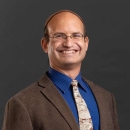The Shmita weekly blog is a partnership between Hazon and 929. If you are interested in contributing to the Shmita Blog, please email sarah.young@hazon.org.
Special Recent Posts
V'Zot Habracha & Hakhel: How The Torah Ends The Shmita Year by Rabbi Yonah Berman
October 13th, 2022
"Joining together with our People, and remembering a place and time before we had our own land, we are being called to maintain the sanctity of humanity and creation." The final parsha in the Torah, V’Zot Habracha, is unique in that[...]
Ha'azinu: The Idolatry Of The Denier, by Rabbi Haggai Resnikoff
October 6th, 2022
"We are growing closer to our last chance to turn our attention back to the earth and its needs, for our beliefs to become re-rooted in reality." What is sacred to a climate denier? What do they worship? They privilege pseudo-science[...]
Vayelech: Is This The End Of Shmita? by Rabbi Petakya Lichtenstein
September 28th, 2022
"What is being born when something is ending and what is ending when something is being born?" This week is the last week of the 7 year sabbatical cycle called Shmita. The portion of Torah read this week, as the year[...]
Nitzavim: Keep It Real - Don’t Overthink It! by Rabbi Benjamin Shalva
September 21st, 2022
"The shmita year is nearly ended, but not quite. There is still time. Time to pause. Time to pray." "And in the night My father came to me And held me to his chest He said there's not much more that you can do Go[...]
Ki Tavo: Property, Shmita And Learning To Fly, by Aharon Ariel Lavi
September 13th, 2022
"You can only give what is yours." Parshat Ki Tavo opens with the commandment of bikkurim. It continues with related agricultural commandments and a commandment to inscribe the Torah on large stones. The sages add that this was made in 70[...]
Ki Tetze: Mitzvot To Combat Bad Habits And Destructive Behaviors, by Rabbi Yedidya Sinclair
September 7th, 2022
"Shmita too can loosen the sway of addictive patterns of consumption." Parshat Ki Tetze begins with two mitzvot that the rabbis characterize as countering addiction. The first, of these, the laws of the female captive, challenges and attempts to moderate the[...]
Shoftim: On the Spiritual Tension of Shmita, By Dr. Tamar R. Marvin
August 31st, 2022
“For is the tree of the field like a human?” Shmita is riven with tension. On the one hand, it is introduced to us in Parashat Behar as a Shabbat of the land: ve-shavta ha-aretz Shabbat la-Shem—“the land shall abstain in[...]
Re’eh, Rosh Hodesh Elul: The Expansiveness of Freedom by Rabbi Dr. Bradley Shavit Artson
August 24th, 2022
"In releasing the land, our finances, and our fellows to freedom, we free ourselves as well, and this freedom ripples out in expansiveness and life." The new month of Elul famously opens us to a time of renewed intimacy. As we[...]
Ekev: It Is A Land Which Hashem Your God Looks After, by Rabbanit Michal Kohane
August 19th, 2022
"In dealing with the land – working it, taking care of it, making it bloom - we have to be constantly connected to the Divine." The Torah portion of Ekev, the 3rd in the last book of the Torah, stretches from[...]
Va-Etḥanan, Shabbat Naḥamu, and Tu Be-Av: With Heaven And Earth As Our Witness, By Rabbi Louis Polisson
August 10th, 2022
"If you know you have harmed the earth, know that you can heal it." On Shabbat Naḥamu, the Sabbath of Comfort the week after Tish’ah B’Av, we read Parashat Va-Etḥanan. Though Shabbat Naḥamu is about consolation and healing after lamenting Jewish[...]
Devarim/Hazon, Erev Tisha B'Av: Rooting Ourselves In Space And Time by Rabbi Jesse Paikin
August 3rd, 2022
On the confluence of the beginning of Deuteronomy, Tisha b’Av, and the shmita year North Americans often suffer from the affliction of being uprooted from space and time. Out of a historical or philosophical perspective, some of us call ourselves “post-modern,”[...]
Matot-Masei: What We Can Learn from Regret, by Rabba Dr. Carmella Abraham
July 28th, 2022
"Through the lens of regret, we learn the importance of appreciating the land and its fundamental purpose of sustaining humankind." In a surprising twist, the midrash recounts the regret expressed by the tribes of Reuben and Gad for choosing to stay[...]
Pinchas: Loving the Land, by Talia Weisberg
July 20th, 2022
"If we lived our love for land - whether in Israel or elsewhere in the world - how different would our world look?" Parshat Pinchas is, at its core, about loving the Land of Israel. The first major event of the[...]
Balak: Getting The Best of Both Worlds, by Aharon Ariel Lavi
July 13th, 2022
"Where is the sweet spot between conserving and respecting the past (cycles), and progressing towards a new reality (linearly)?" Parashat Balak is one of the two weekly portions in the Torah named after a significant non-Jewish protagonist. The first one is[...]
Chukat: What Happens When You Keep Hitting The Rock by Gillian Steinberg
July 6th, 2022
"We must hear both God and the rock crying out: the punishment is upon us." In Chukat, after Bnei Yisrael complain about missing the comforts of home, Moses strikes a rock to elicit water. God is angry at Moses for striking[...]
Korach: When Is The Desire For Equality Sincere? by Avraham Norin
June 29th, 2022
"Capable leadership can use authority wisely to contribute to solidarity and equality." A memorable line from the movie The Incredibles is said as Syndrome captures the Incredible family and explains his grandiose plan to the captured heroes "I'll sell my inventions[...]
Shlach: Honoring The Bounty by Rachel Siegal
June 23rd, 2022
"A person who is deeply connected to the land around her is a person who can honor its uniqueness, celebrate its bounty, and respect its need to rest." This week’s parsha, Shlach, contains the well-known scene of the scouts sent to[...]
B’haalot’cha: Of Fertility And Infertility In Land And People by Anna Burke
June 15th, 2022
"Action and prayer work hand-in-hand; we cannot rely solely on God for our well-being, but we can derive meaning and support from walking our journeys with God in our hearts and minds." Parashat B’haalot’cha marks the beginning of the Israelites’ journey[...]
Naso: Lift Up Their Heads - And Notice Them, by Rabbi Carol Glass
June 8th, 2022
"Moving towards equity, inclusion, and diversity by truly seeing others and sharing our bounty with them." By mandating a 7th year cessation of all agricultural production and the release of intra-Jewish debts, shmita is a highly ‘disruptive’ ancient Jewish practice with[...]
BaMidbar: Being Sustained, In Eden and the Wilderness, by Rabbi Eli Herb
May 31st, 2022
"To create a society balanced between the curse of civilization and the wildness of being nourished by the Creator." “When the Holy Blessed One gave the Torah, no bird chirped, no fowl fluttered, no ox lowed … the sea did not[...]
BeHukkotai: Why Land is Different, by Rabbi Dr. Bradley Shavit Artson
May 25th, 2022
"Land is imbued with holiness, which means that like God, it is beyond human measures of usefulness or control" As we prepare to close the Book of Leviticus, the Torah’s pinnacle, we are left with a message of responsibility, consequences, and[...]
Parshat Behar: To Dwell Within Them, by Arthur Green
May 18th, 2022
״אין לך פרשה שאין בה תחיית המתים אלא שאין בנו כח לדרוש״ (ספרי האזינו ש״ו) There is no portion in the Torah that cannot be brought back to life, if only we had the strength to interpret!” (Sifrei, Ha’azinu 306:35) 1 וידבר יהו״ה[...]
Parshat Emor: Making It All Count, By Rabbi Jon Kelsen
May 11th, 2022
"Counting the Omer - like the shemitah cycle - invites us to believe that each day, week and year is count-worthy, valuable and unique." One after the other, the days proceed. The slog continues on, with no progress or forward movement[...]
Parashat Kedoshim: How To Be Holy Now?, by Rabbi Atara Cohen
May 4th, 2022
"Taking a step back to envision a holy, caring society - especially in light of the oppression perpetuated by this very parasha." Parashat Kedoshim begins with what one might call a “greatest hits” compilation of mitzvot. Here God lists the ways[...]
Acharei Mot: You Can Be Too At Home by Abe Mezrich
April 27th, 2022
"What you see as your own private grounds is actually a base from which to serve the world." It makes sense that Aaron’s sons would bring a strange fire to God in the Mishkan (Tabernacle). Aaron their father is the high[...]
Pesach Torah Reading: Between Particular and Universal, by Vincent Calabrese
April 12th, 2022
"Though the Exodus tells the story of one nation’s birth, the legal and religious system to which it gives rise is open to outsiders." On Passover our Torah reading is taken from one of the most dramatic moments of the Book[...]
Metzora: Illness And Recovery, Then And Now by Mira Potter-Schwartz and Rabbi Ariel Milan-Polisar
April 7th, 2022
Just as the Torah provides an opportunity for recovery regardless of poverty level - different recovery pathways dependent on means - so too should our health system. Parshat Metzora marks the end of the instructions that detail what a person afflicted[...]
Tazria/Shabbat Ha’Chodesh: Release, Respect, Renew by Rabbi Arthur Waskow
March 30th, 2022
The parasha for this week is Parashat Tazria, but it also Shabbat Ha’Chodesh, the week of the new moon of Nisan, the month of Pesach. The haftarah is from Ezekiel 45:16 - 46:18. "By whatever gateway we enter the shmitah year,[...]
Shemini: Energizing The Ultimate Source Of Energy, by Judry Subar
March 23rd, 2022
"When we focus on the purposes of Shmita we facilitate the flow of spiritual power from earth to heaven and back again." So many adjectives can be used to describe the act of eating: necessary, enjoyable, challenging, fraught, social, and on[...]
Parashat Tzav: Shmita As An Expression of Gratitude By Shoshana Michael Zucker
March 16th, 2022
People who have the tools of production at their disposal should gratefully acknowledge their blessings, and invite others to partake of the bounty. Of the many sacrifices mandated in Parashat Tzav, one stands out: the thanksgiving offering (Leviticus 7:12-15), which must[...]
Vayikra, Zachor: Stepping Back, Drawing Close By Rabbi Daniel Raphael Silverstein
March 9th, 2022
"When we release our usual patterns and tools, we open a sacred space for contemplation, and for re-imagining ourselves and our world." Our parsha of Vayikra (“And He called”) begins the third book of the Torah, to which it also gives[...]
Pekudei: Combining Laws And Generosity by Josh Weiner
March 3rd, 2022
"Like the mishkan that was built of laws and gifts, the paradoxes of the shmita system allow kindness to re-enter our economic lives." This week’s parasha concludes the construction of the Mishkan - the portable center of ritual life as the[...]
Vayakhel: Some Striking Shabbat And Shmita Parallels by Rabbi Jack Bieler
February 24th, 2022
Just as the weekly Shabbat starkly reminds us who is the Creator and who is the Creature, shmita achieves a similar goal Parashat Vayakhel, although primarily devoted to the fabrication of the Tabernacle and its vessels, begins (Exodus 35:1-3) with a[...]
Ki Tissa: Breaking God’s Tablets? Way To Go, Moses! by Rabbi Jessica Fisher
February 17th, 2022
"Sometimes rupture is necessary and holy. Sometimes disruption is an essential spiritual practice." In parashat Ki Tissa, we encounter one of the pivotal moments of tension in the Torah. After spending forty days and nights on Mount Sinai, Moses descends, carrying[...]
Tetzaveh: Portable Holiness, Global Jewishness by Elyssa Hurwitz
February 9th, 2022
"Holiness is inside of us, meaning we can embrace shmita, both inside and outside of the Land of Israel, inside and outside of the traditional ways of observing it." As we continue forward through both the Book of Exodus and the[...]
Terumah: Cultivating The Trait of Generosity, by Rabbi Micah Peltz
February 3rd, 2022
"When we are able to live generously, then we can create not only a sacred structure, but a more sacred world." Parashat Terumah begins the final section of the book of Exodus which deals mostly with the construction of the mishkan,[...]
Mishpatim: Shmita, By Rabbi Dr. Bradley Shavit Artson
January 26th, 2022
"Our mastery and possession of creatures and objects is always provisional and limited by the broader guidelines of our creatureliness." This parashah is known in Hebrew as Sefer Ha-Brit (the Book of the Covenant). It contains the first body of laws[...]
Yitro: The Ten Commandments As A Guide To A Sustainable Society, By Dr. Jeremy Benstein
January 19th, 2022
"What does it take to build a society that will long endure on the land?" The highlight of this week's parasha, the Decalogue, begins with God's self-identification as having brought Israel "out of the house of bondage" and launches directly into[...]
Beshalach: The Knowledge Of Water, Fire And Clouds By Rabbi Gila Caine
January 12th, 2022
"This is the strongest lesson of shmita, that the non-human world around and within us is filled with its own intelligence, and its own Torah." This week’s Torah portion kicks off with our ancestors leaving Mitzrayim (the Biblical Egypt, the place[...]
Bo: In Times Of Darkness, Can We Share Our Light? By Yali Szulanski
January 6th, 2022
"The plague of darkness evokes imagery of desperation, fear, and of dark times. It is the plague, perhaps, that most echoes the time we live in now." Parashat Bo occurs in anticipation of Bne’i Israel’s exodus from Egypt. Here, the last[...]











































